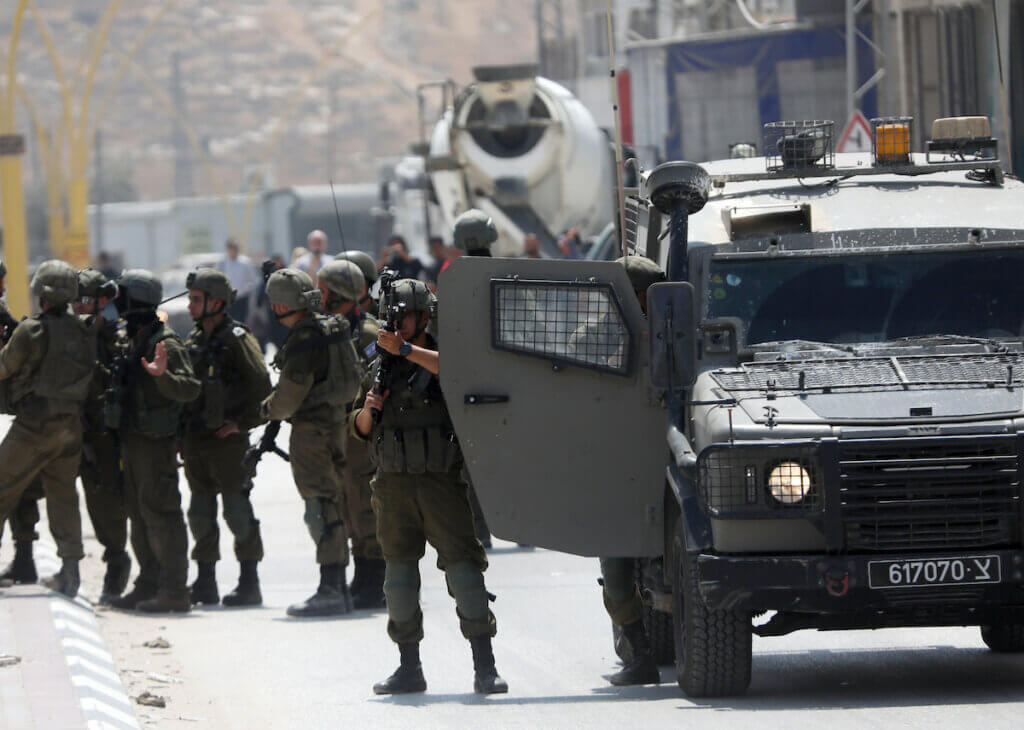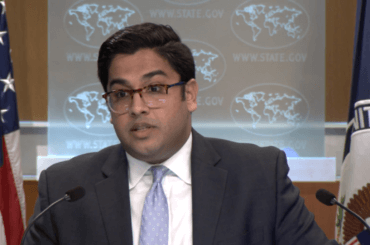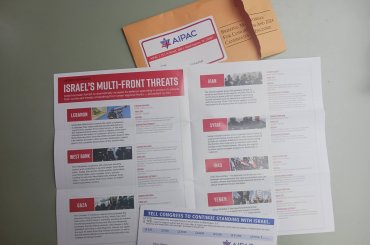Key Developments (August 18 – 21)

- Israeli settlers have renewed their attacks on the Nablus-area town of Huwwara, after two Israelis were killed by an alleged Palestinian shooter in the town on Saturday, August 19. The incident occurred in the afternoon at a carwash off the main road of the town, which serves as a main thoroughfare between Nablus city to the north and the surrounding villages to the south. The road is also used by Israeli settlers, who, in addition to participating in deadly pogroms in the town, also pass through the road and frequent some businesses. According to Israeli media and army officials, two Israelis from the city of Ashdod on the southern Mediterranean coast were in Huwwara getting their car washed when a young man approached them on foot and shot them with a handgun before fleeing the scene. In the hours after the shooting, Israeli forces embarked on a widespread manhunt for the shooter, conducting widespread closures in the Nablus area and massive raids on the surrounding villages, including Beita, Awarta, and Aqraba. According to the Palestinian Red Crescent, more than 100 Palestinians were injured by Israeli forces during a raid on Beita. At least two Palestinians were arrested during the raids. Meanwhile, Israeli settlers embarked on a rampage, attacking Palestinian vehicles with rocks on main roads, as well as homes in the town of Burin. Settler groups also allegedly published calls to “burn down Huwwara,” Middle East Eye reported. Over the past year, Huwwara has become a target of far-right ideological settlers, who, with the support of government ministers, have committed a number of pogroms in the town, attacking people and their property, and setting vehicles and homes on fire.
- A 19-year-old Palestinian who was shot and severely injured by Israeli gunfire last Wednesday succumbed to his wounds on Saturday, August 19. According to the Palestinian Ministry of Health, Muhammad Abu Asab was shot in the head by Israeli forces during a raid on the Balata refugee camp in Nablus last week, and had been in critical condition in hospital since. Meanwhile, in occupied East Jerusalem, a 30-year-old Palestinian father of two succumbed to wounds he sustained from Israeli fire two years ago. The PA-owned Wafa news agency reported that Hamza Abu Sneineh, a resident of the Old City of Jerusalem, was shot in the eye by a rubber bullet during an Israeli attack on the Al-Aqsa Mosque compound in Ramadan in May 2021. Abu Sneineh had reportedly received various treatments over the past two years due to complications from his injury. He succumbed to his wounds on Friday, August 18. Also in East Jerusalem, two Palestinians, including a 15-year-old boy, were also shot and seriously injured by Israeli gunfire.
- Nine Palestinian administrative detainees are in the midst of ongoing, open-ended hunger strikes in protest of their unlawful detention by Israeli forces. The prisoners are on a number of individual strikes, ranging between 11-18 days. Among them are former prisoners and hunger strikers like Kayed al-Fasfous, who, in 2021, at the age of 32, underwent a 131-day hunger strike that brought him close to death as he protested Israel’s years-long campaign of harassment against him, which included more than five years of administrative detention sentences. Administrative detention is a policy whereby Israel arrests Palestinians and detains them for months and years at a time without ever charging them with a crime or putting them on trial. The policy is typically used to target and punish Palestinians for their political activity or affiliations, even though no official “crime” has been committed under Israeli military law, under which Palestinians in the occupied West Bank live.
- One Israeli settler was killed, and another injured, in a shooting operation on a highway in the southern West Bank district of Hebron. According to Israeli media, the settler who was killed was identified as a woman in her 40s who was a resident of the illegal Beit Hagai settlement, close to where the operation took place. A second man, also reportedly in his 40s, was seriously injured in the incident but was in stable condition after being moved to a hospital. Israeli forces embarked on a widespread manhunt for the shooter, enforcing a number of flying checkpoints and road closures across the Hebron district.
In-depth
There has been a marked decline in acts of resistance against Israeli forces in recent months. Ever since the two-day battle in Jenin last June, these comparatively low numbers have remained consistently low, whether it’s shootings, stone-throwings, the use of Molotov Cocktails, the use of IEDs, shooting at drones, or using fireworks against the Israeli army. By comparison, the months preceding the Jenin operation witnessed the proliferation of resistance acts — over a hundred shootings per month from January to March before taking a dip to half that number; the detonation of between 30 – 40 IEDs in the same period before also dropping; and so on.
One would be tempted to conclude from this information that the Jenin operation successfully suppressed the armed resistance in Jenin refugee camp. But these numbers can only take you so far. They indicate little regarding the state of the resistance organizations or their underground activities or of the state of their coordination and mobilization within their communities, and they reveal even less about whether resistance organizations like the Jenin Brigade are functioning according to an intentional strategy or what that strategy might even be.
Of course, there has been no shortage of attempts to limit the Brigade’s activities, including the unofficial second phase of the operation that saw the assertion of the military presence of the Palestinian Authority security forces in the Jenin area, to serve as a sort of Palestinian “buffer” between the resistance and possible Israeli targets. Regardless, this hasn’t done much to influence the internal activity of the armed groups themselves, and this period of quiet is more akin to a temporary break. Israeli analysts have predicted the same, arguing that counterinsurgency efforts would only cause a temporary halt to resistance, but that it will do little to change the situation in the West Bank.
Perhaps the operations of the past two days came as a validation of these predictions. While the circumstances and identities of those responsible for the attacks remain unknown, the details of the attacks indicate that they are “lone wolf” operations — in other words, Israel is powerless to anticipate and stop them, and they continue to pose a security concern for Israeli forces. Huwwara has by now become a regular and easy point of confrontation with settlers who often drive through the town to reach neighboring settlements, and it’s no surprise that an alternative route has been planned for them. Hebron, however, has remained largely dormant, making Monday’s operation a surprise. These events don’t necessarily signal a rising trend or a resurgence — and in any event, chances are that they are unconnected to any organized group — but they do indicate that after two years of a relentless counterinsurgency campaign, and eight years since the proliferation of the “lone wolf” model of resistance since the “Knife Intifada” of 2015, Palestinians can still find it in themselves to resist by any means necessary.
Important figures
- An estimated 229 Palestinians have been killed by Israeli gunfire, including soldiers and settlers, since the start of the year.
- Israel is currently imprisoning 5,100 Palestinian political prisoners in its jails, according to prisoners rights group Addameer.
- 1,200 Palestinian political prisoners are currently being held under administrative detention, the practice of imprisoning Palestinians without charge or trial.



“While the circumstances and identities of those responsible for the attacks remain unknown, the details of the attacks indicate that they are “lone wolf” operations — in other words, Israel is powerless to anticipate and stop them, and they continue to pose a security concern for Israeli forces.”
This is the analysis of Ami Ayalon, former head of Shin Bet:
https://www.middleeastmonitor.com/20221126-former-shin-bet-chief-expects-dangerous-escalation-between-israel-palestine/
Former Shin Bet chief expects ‘dangerous’ escalation between Israel, Palestine…We are facing a new reality… When terror spells, we will not be able to stop it because it will be carried out by factions and individuals.”…He expects that many people will die in such an escalation: “I do not know the number, but we are going to see this. This will not happen tomorrow, but I am sure it will happen because the power behind it is being fed by poverty, lack of home and land of leadership.”
“Religious and national elements are increasing among the Israelis, while poverty and lack of hope are increasing among the Palestinians,” he explained.